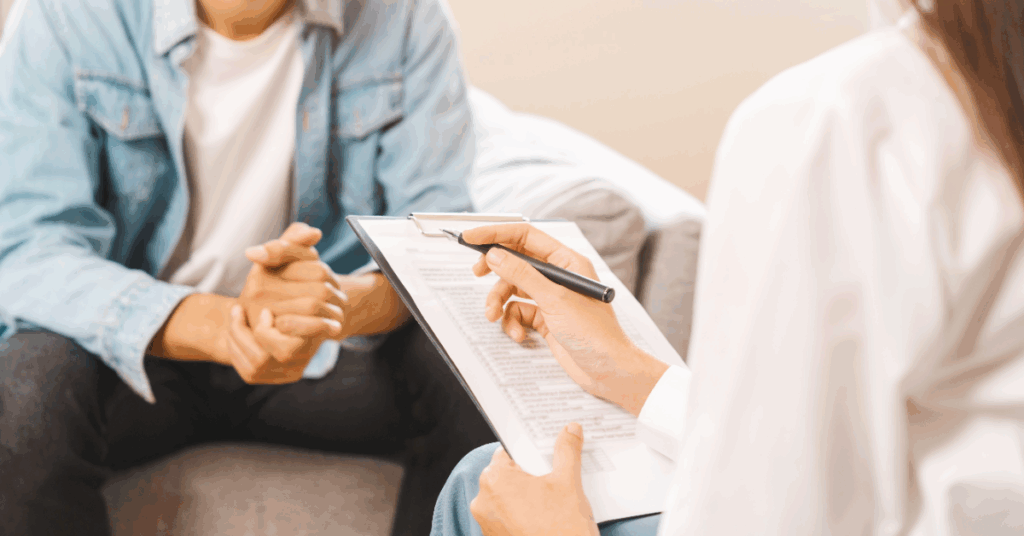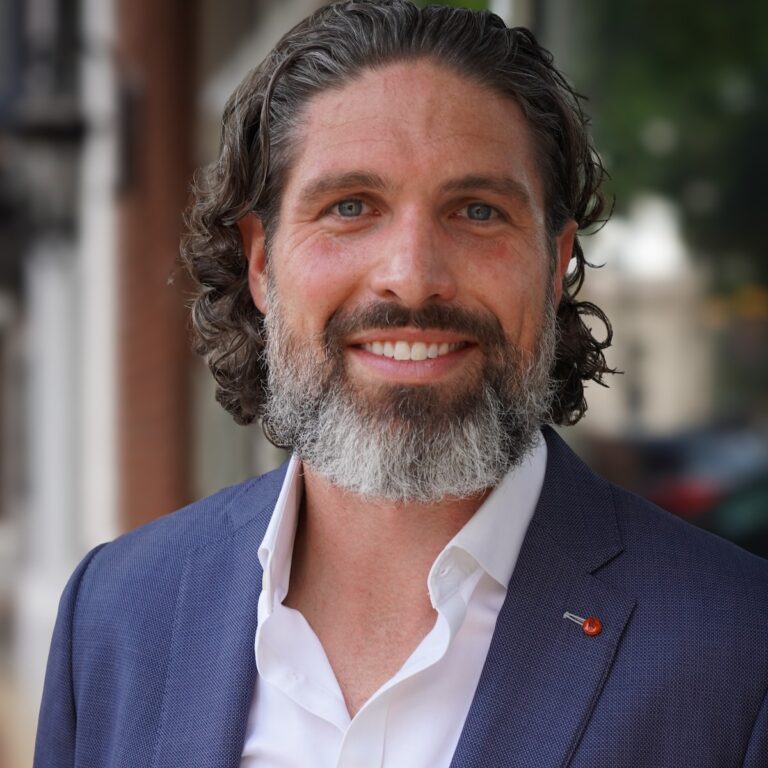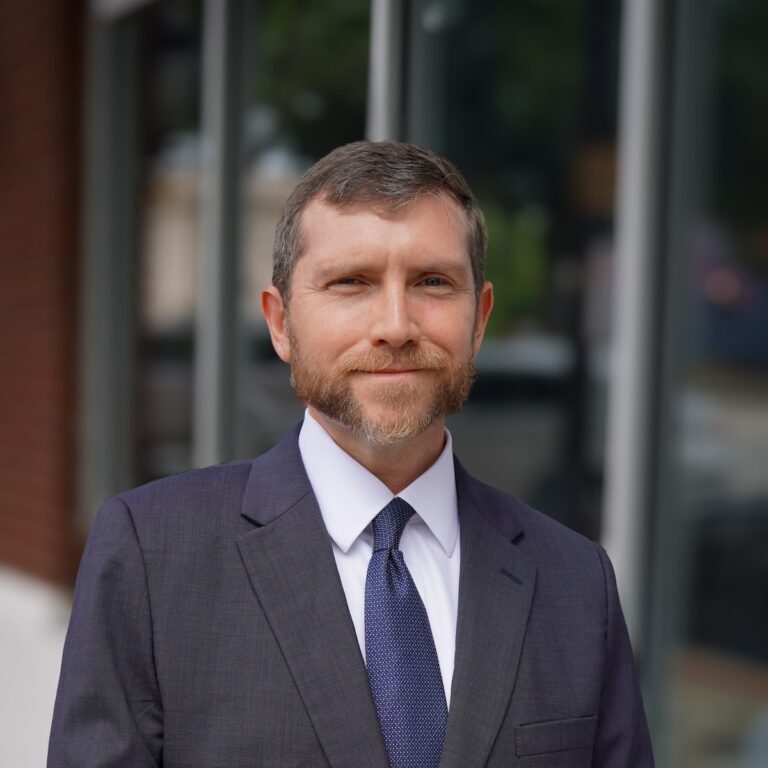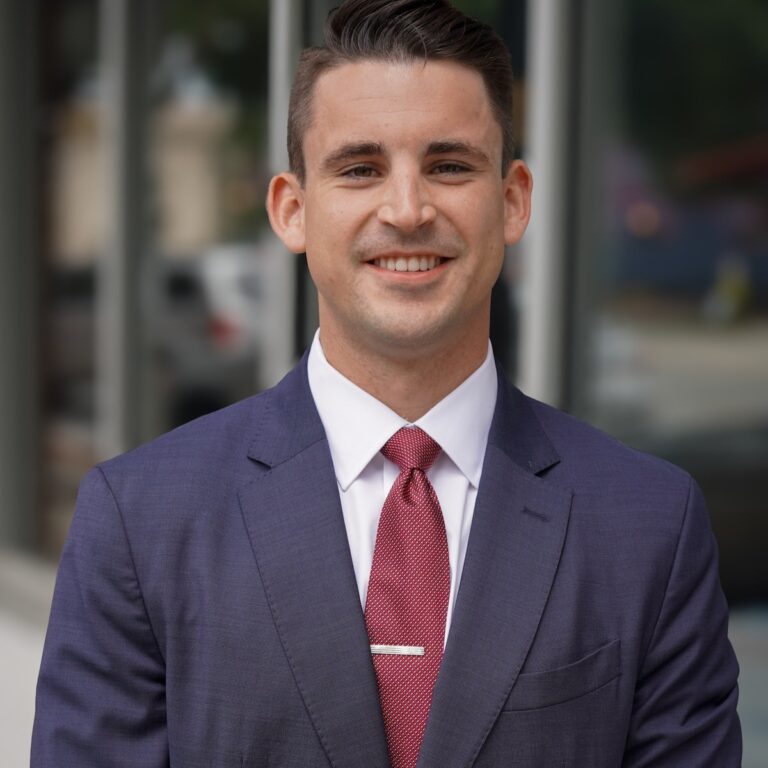PTSD After Car Accident

Car accidents can leave lasting emotional scars. Flashbacks, nightmares, anxiety, and avoiding reminders of the crash are common signs of PTSD. It can take several weeks or even months to fully recover from such a difficult experience.
No matter the size of the accident, your feelings are valid, and you deserve support. Therapy, treatment, and legal help can guide you toward recovery.
At Armada Law, our experienced car accident attorneys can help you seek compensation for both physical injuries and emotional trauma, so you can focus on healing and moving forward.
Cause
PTSD can occur after experiencing or witnessing a traumatic event. It makes you feel stressed, scared, or on edge even after the danger is over. PTSD can affect your daily life, work, school, and relationships.
Timing and Triggers
PTSD can appear right after a traumatic event or develop months or even years later. The chance of PTSD increases based on:
- How serious the trauma was
- Whether it happened more than once
- How close you were to the event
- Your relationship to the people involved
How PTSD Affects You
- Symptoms must last more than a month to be considered PTSD.
- Symptoms are serious enough to interfere with daily life.
- Anyone can develop PTSD, including children.
Types of Traumatic Events That Can Cause PTSD
There are many situations outside out auto wrecks that can cause someone experiencing PTSD. The most common can include:
- Accidents: Severe car crashes, plane crashes, or other life-threatening accidents
- War or combat: Fighting in the military or experiencing battle
- Violence and abuse: Sexual assault, physical assault, or ongoing abuse
- Natural disasters: Earthquakes, fires, floods, or hurricanes
- Crime-related trauma: Being a survivor of violent crimes
- Loss of loved ones: Sudden or violent death of a family member or close friend
Signs & Symptoms
Recovering from a crash isn’t just about healing your body, it’s about caring for your mind, too. Many people experience emotional and mental symptoms long after the physical injuries fade. Here are some signs that you may be struggling with post-traumatic stress:
Reliving the crash – Replaying the accident in your mind or experiencing vivid flashbacks that make it feel like you’re there again. Certain sounds or smells might trigger these memories.
Avoiding reminders – Going out of your way to avoid talking or thinking about the accident, skip certain routes, or feel uneasy getting into a car again.
Trouble sleeping – Nightmares, restless nights, or fear of falling asleep can make it hard to get proper rest.
Difficulty concentrating – It may be hard to focus, remember details, or stay engaged in work or everyday tasks.
Feeling constantly on edge – Sudden noises or movements might startle you more than before. You might feel tense, jumpy, or always “on alert.”
Irritability or anger – You may notice yourself getting upset easily or snapping at loved ones without meaning to.
Mood changes – Feelings of sadness, guilt, or hopelessness can come and go quickly. You might feel disconnected from others or things you once enjoyed.
Withdrawing from others – You may prefer to be alone or feel like others won’t understand what you’re going through.
Emotional numbness or depression – You might feel empty, unmotivated, or detached from life. In some cases, PTSD can lead to thoughts of self-harm or suicide.
If you ever feel hopeless or unsafe with your thoughts, call or text 988 to reach the Suicide and Crisis Lifeline for free, confidential support — available 24/7.
You’re not alone. Many people experience these symptoms after a serious crash. Reaching out for help, whether from a doctor, counselor, or trusted friend is a powerful step toward healing.
Should I Seek Legal Advice?
After a car accident, the trauma can go far beyond physical injuries. Many survivors experience emotional distress or post-traumatic stress disorder (PTSD) that makes everyday life feel overwhelming. Flashbacks, anxiety, or trouble sleeping can make it hard to focus on recovery—especially when medical bills and insurance claims start to pile up.
At Armada Law, we understand that healing after an accident means caring for both your body and your mind. Our compassionate legal team is here to guide you through every step of the process, so you can focus on recovery while we handle the rest.
From connecting you with trusted medical and mental health professionals to managing your claim for medical costs, lost wages, and pain and suffering, we stand by your side. Our goal is to help you find peace of mind and the financial stability you need to move forward.
With experience, empathy, and dedication, Armada Law fights for the justice you deserve. Schedule a free consultation today to talk with a South Carolina personal injury attorney who truly understands the challenges of PTSD after an auto accident.
How Can a Lawyer Help You After an Auto Accident? (What Survivors Want to Know Most)
If you’re facing mental struggles, physical injuries or medical bills after an accident, a personal injury lawyer can help you get fair compensation. At Armada Law, here’s how we make the process easier and stand up to the insurance company:
-
- Get fair payment for your injuries and expenses
-
- Works to have all medical costs covered, including doctor visits, therapy, and future treatment.
-
- Seeks compensation for lost income and physical and emotional pain.
-
- Answers common concerns like:
-
- “How do I get my bills paid?”
-
- “How do I make the insurance company take my pain seriously?”
-
- Answers common concerns like:
-
- Get fair payment for your injuries and expenses
-
- Handle all insurance communication and paperwork
-
- Deals directly with insurance adjusters so you don’t have to.
-
- Manages the entire claims process from start to finish.
-
- Addresses questions like:
-
- “Do I have to talk to the insurance company myself?”
-
- “Can someone else take care of all the calls and forms?”
-
- Addresses questions like:
-
- Handle all insurance communication and paperwork
-
- Build strong evidence to prove your injury
-
- Gathers medical records, police reports, photos, and witness statements.
-
- Works to prove the other driver caused the crash.
-
- Helps with concerns such as:
-
- “How can I prove my ptsd is serious if it doesn’t show up on scans?”
-
- Helps with concerns such as:
-
- Build strong evidence to prove your injury
-
- Help you get medical care with no upfront cost
-
- May arrange treatment under a medical lien so you can get care now and pay later from your settlement.
-
- Addresses questions like:
-
- “How can I afford physical therapy and doctor visits right now?”
-
- Addresses questions like:
-
- Help you get medical care with no upfront cost
-
- Stand up to the insurance company
-
- Challenges attempts to downplay or deny your injury.
-
- Uses medical evidence and legal arguments to support your claim.
-
- If a fair offer isn’t made, takes your case to court to fight for compensation.
-
- Helps answer:
-
- “What if they try to lowball or deny my claim?”
-
- Helps answer:
-
- Stand up to the insurance company
We understand that no amount of help can erase what you’ve been through, but you don’t have to face this alone. Our team is here to stand by you and guide you toward healing and justice.
Risk Factors
Common factors that can raise the risk of PTSD after a car accident include:
-
- Severe or life-threatening crashes – The more serious the accident, the higher the emotional impact.
-
- Seeing others badly hurt or killed – Witnessing trauma can make recovery harder.
-
- Personal or family history of mental health issues – Conditions like anxiety, depression, or past trauma can increase vulnerability.
-
- Feeling helpless or out of control – Not being able to stop or escape the event can intensify fear and distress.
-
- Ongoing stress after the crash – Financial problems, legal issues, or lasting injuries can add emotional strain.
Long-term PTSD risk may be higher if:
-
- You’re female – Studies show women are more likely to experience PTSD symptoms.
-
- You’ve had prior trauma or depression – Previous emotional or physical trauma can make the mind more sensitive to new stress.
-
- Someone died in the accident – Losing another person in the crash often leads to deeper emotional distress.

When to See a Doctor for PTSD
While support from friends and family is invaluable, there are times when professional care is needed. You should consider contacting a doctor or mental health specialist if:
-
- You have no one to share your feelings with.
-
- Your emotions feel overwhelming (anxiety, sadness, or nervousness dominate your day)
-
- Symptoms haven’t improved after about six weeks.
-
- Sleep is difficult or nightmares are frequent.
-
- You argue more with loved ones or feel isolated.
-
- Work or daily responsibilities are suffering.
-
- Friends or family suggest getting help.
-
- You notice you’re more accident-prone.
-
- You’re using alcohol, drugs, or other coping methods to manage your feelings.
Seeking help is a sign of strength. Early support can make recovery smoother and help you regain control of your life after a car accident.
Dos and Don’ts of PTSD Struggles
What to Avoid:
-
- Avoid bottling up your feelings – this can make matters worse and can even have a negative impact on your overall health and well-being
-
- Avoid taking on too much – It is healthy to stay active and keep yourself busy after a car accident, but if you take on too much too soon, it can make recovery harder if you are dealing with PTSD. Give yourself the opportunity to ease back into your normal routine and take things at your own pace.
-
- Avoid alcohol and drugs – It can be easy to turn to alcohol or drugs after an incident because you may think they will help you forget the difficult memories of the car crash. However, the negative effects of alcohol and drugs can lead to depression and other anxiety-related issues.
-
- Avoid making any major changes to your life – After a car accident, give yourself some time before making any major life decisions. It’s normal for your judgment to be a little off immediately after something so stressful.
What to Do (Path to Recovery):
-
- Face reality – it is better to find out what happened rather than to wonder about the circumstances that led up to the car accident
-
- Get involved with others who survived the car accident – by being in touch with other survivors who experienced the same thing as you, it can help you cope
-
- It’s OK to grieve – Allow yourself time to grieve if you lost someone close, it’s normal to feel this way so let it happen. It’s a very natural reaction.
-
- Seek help and support – it is far better to seek help and support so that you can talk to someone about your experience than it would be to bottle it up
-
- Make time for yourself – there will be times that you just want to be alone or with someone who is closest to you which is perfectly normal following a traumatic event such as a car crash
-
- Talk about the car accident – taking it slowly you should allow yourself to think about the traumatic event you experienced and to talk about it with people around you. It is perfectly natural to cry when you do talk about what happened to you
-
- Maintain a routine – it is better to maintain a routine, to eat at regular times and to make sure you have a balanced diet
-
- Do exercises – starting gently, you should make sure you get enough exercise
-
- Try “Normal” Daily Activity – Do “normal” things with people around you which can help you get through a bad time and is an essential part of the healing process
-
- Take care – studies have shown that you are more at risk of being in an accident if you were the survivor of a traumatic event, so it is important to take extra care even around the home and when you are out and about driving a car
-
- Seek legal advice – Medical expenses rake up fast, so seek a skilled injury attorney for proper legal advice for your case. At Armada Law, we offer a free case review to get you started.
Support Groups: You Are Not Alone
If you or a loved one are struggling with PTSD after a car accident, these organizations can provide help, guidance, and treatment options:
-
- National Center for PTSD (U.S.)
-
- Website: https://www.ptsd.va.gov
-
- Offers information, self-help tools, and resources for finding treatment.
-
- National Center for PTSD (U.S.)
-
- Substance Abuse and Mental Health Services Administration (SAMHSA) – Helpline
-
- Call or text: 1-800-662-4357 (1-800-662-SAMH)
-
- 24/7, free, confidential support for mental health crises and finding local treatment.
-
- Substance Abuse and Mental Health Services Administration (SAMHSA) – Helpline
-
- National Alliance on Mental Illness (NAMI)
-
- Helpline: 1-800-950-NAMI (6264)
-
- Offers support, education, and connections to local mental health services.
-
- Website: https://www.nami.org
-
- National Alliance on Mental Illness (NAMI)
-
- Suicide & Crisis Lifeline
-
- Call or text: 988
-
- 24/7 support for anyone feeling hopeless, depressed, or at risk of self-harm.
-
- Suicide & Crisis Lifeline
-
- Veterans Crisis Line (for veterans and active-duty service members)
-
- Call: 1-800-273-8255, press 1
-
- Text: 838255
-
- Chat online: https://www.veteranscrisisline.net
-
- Veterans Crisis Line (for veterans and active-duty service members)
Seeking help is a sign of strength, not weakness. Whether it’s talking to a mental health professional, your GP, or a support line, reaching out is the first step toward healing.

Statistics Related to PTSD After Automobile Accident
Car accidents aren’t just physically damaging; they often cause Post-Traumatic Stress Disorder (PTSD). According to research by the National Institutes of Health, based on a review of studies involving over 50,000 people:
-
- Frequency of People Impacted:
-
- 27.5% screened positive for PTSD six months after the crash.
-
- 24.3% tested positive for PTSD a year after the crash.
-
- Frequency of People Impacted:
-
- Initial Shock: Within about six weeks of the accident, anywhere from 20% to over 45% of survivors—that’s nearly half of the people involved—will develop PTSD.
-
- One Year Later: Even a year after the crash, between 18% and 30% of people still have PTSD.
-
- Long-Term Impact: For those who are initially diagnosed with PTSD, more than half are still struggling with symptoms as long as three years after the accident.
-
- Quick Symptoms: A month after the crash, 4 out of every 10 survivors report having at least mild PTSD symptoms.
-
- Recovery Time: Generally, it takes one to three years for people to recover from PTSD related to a car accident.
-
- Minor Accidents Still Hurt: Even people in minor accidents can be significantly affected. One in four survivors will avoid driving or being in a car for up to four months afterward.
The good news is that certain treatments, like Cognitive Behavioral Therapy (CBT) and Virtual Reality (VR) treatment, have been shown to help significantly reduce these PTSD symptoms.
FAQS
How can I help someone who is struggling with PTSD after an auto accident?
If someone you care about was in a car accident and is feeling traumatized, you can support them in several ways:
-
- Be present: Let them know you are there, even if they don’t want to talk about the crash. Your presence alone provides comfort.
-
- Listen without pressure: Offer a safe space for them to share their thoughts and feelings whenever they are ready.
-
- Provide practical help: Trauma can make everyday tasks feel overwhelming. Help with meals, cleaning, or other daily chores to ease their burden.
Why do women seem to get PTSD more often than men after a crash?
Research consistently shows that women are more likely to develop PTSD after trauma. This may relate to differences in how men and women process emotions, biological factors, or social influences.
Does having a serious physical injury mean I’ll definitely get PTSD?
Not necessarily. The severity of your injury doesn’t automatically predict PTSD. However, injuries that cause long-term disability, like fractures that limit mobility, may increase risk because ongoing pain and challenges can add stress.
Can being at fault for the crash affect my mental health?
Interestingly, some studies show that people found to be at fault for the accident were less likely to have PTSD six months later. This effect tends to fade after a year. Researchers think this may be linked to personality traits or the sense of losing control when you are not at fault.
What is PTSD?
Post-Traumatic Stress Disorder (PTSD) is a serious mental health condition that develops after a person experiences or witnesses a frightening or life-threatening event. Basically, your brain stays in “survival mode,” making you feel anxious and afraid long after the danger has passed.
Can a car accident cause PTSD?
Yes. Car accidents are a common cause of PTSD, even for people outside the military. The sudden shock, fear, and trauma from a crash can trigger lasting stress responses in the brain.
How common is PTSD after car accidents?
PTSD is fairly common after crashes. Studies show that 20% to 45% of car accident survivors experience PTSD symptoms in the weeks after the incident. In other words, about one in four people involved in a serious crash may develop post-traumatic stress.
What causes PTSD after a car crash?
Several factors can trigger PTSD:
-
- Fear of death or injury: Feeling that you or someone else might die overwhelms your brain’s coping system.
-
- Loss of control: Accidents happen suddenly, leaving you helpless and shocked.
-
- Severity and suddenness: The violent impact jolts your nervous system and creates lasting stress.
What complications can occur if PTSD is untreated?
If left untreated, PTSD can affect your mind, body, and daily life:
-
- Other mental health issues: You may develop severe anxiety, depression, or phobias (for example, fear of driving).
-
- Substance misuse: Some people turn to alcohol or drugs to cope, which worsens stress over time.
-
- Social isolation: You might avoid friends, family, or activities, straining relationships.
-
- Physical symptoms: Chronic stress can cause headaches, body pain, insomnia, and digestive problems.
How long does it take to heal from PTSD?
Recovery varies. Many people notice initial stress easing within weeks or months. However, for those who develop full PTSD, symptoms can last six months or longer if untreated. Recovery is not linear, but with consistent therapy, most people regain control and stability.
Tip: Seek help if symptoms last longer than a month. Early care improves long-term outcomes.
How is PTSD diagnosed?
Mental health professionals diagnose PTSD through careful evaluation. They review your history and symptoms, then ask detailed questions about the trauma and how it affects your thoughts, feelings, and daily life.
How is PTSD treated after a car accident?
Effective treatment exists and often combines therapy and medication.
-
- Trauma-Focused Cognitive Behavioral Therapy (TF-CBT): Helps you identify and change negative thought patterns from the trauma while learning coping skills.
-
- Exposure Therapy: Gradually exposes you to safe reminders of the event to reduce fear and anxiety over time.
-
- Eye Movement Desensitization and Reprocessing (EMDR): Uses guided eye movements or hand taps while recalling the trauma to help the brain process and store the memory properly.
-
- Medication: Antidepressants or anti-anxiety medications may ease symptoms like severe worry or insomnia, supporting therapy progress.
When to reach an attorney for PTSD after an auto accident?
You should always consult an experienced South Carolina personal injury lawyer after any kind of accident. Armada Law works on a contingency basis, which means an attorney only gets paid if you collect compensation. Your initial consultation is free.
Our attorneys will help with all aspects of your insurance claim or personal injury lawsuit. We’ll gather evidence, manage your medical documentation, negotiate with insurance companies, and secure fair compensation. So, reach us 24/7 for a free consultation!
Sources on PTSD Health Complications:
Medical Disclaimer: The information on this website is for educational purposes only. Our content is based on trusted medical sources, but it should not be taken as medical advice. If you have questions or concerns about your health, please talk to a doctor or other qualified healthcare professional.





